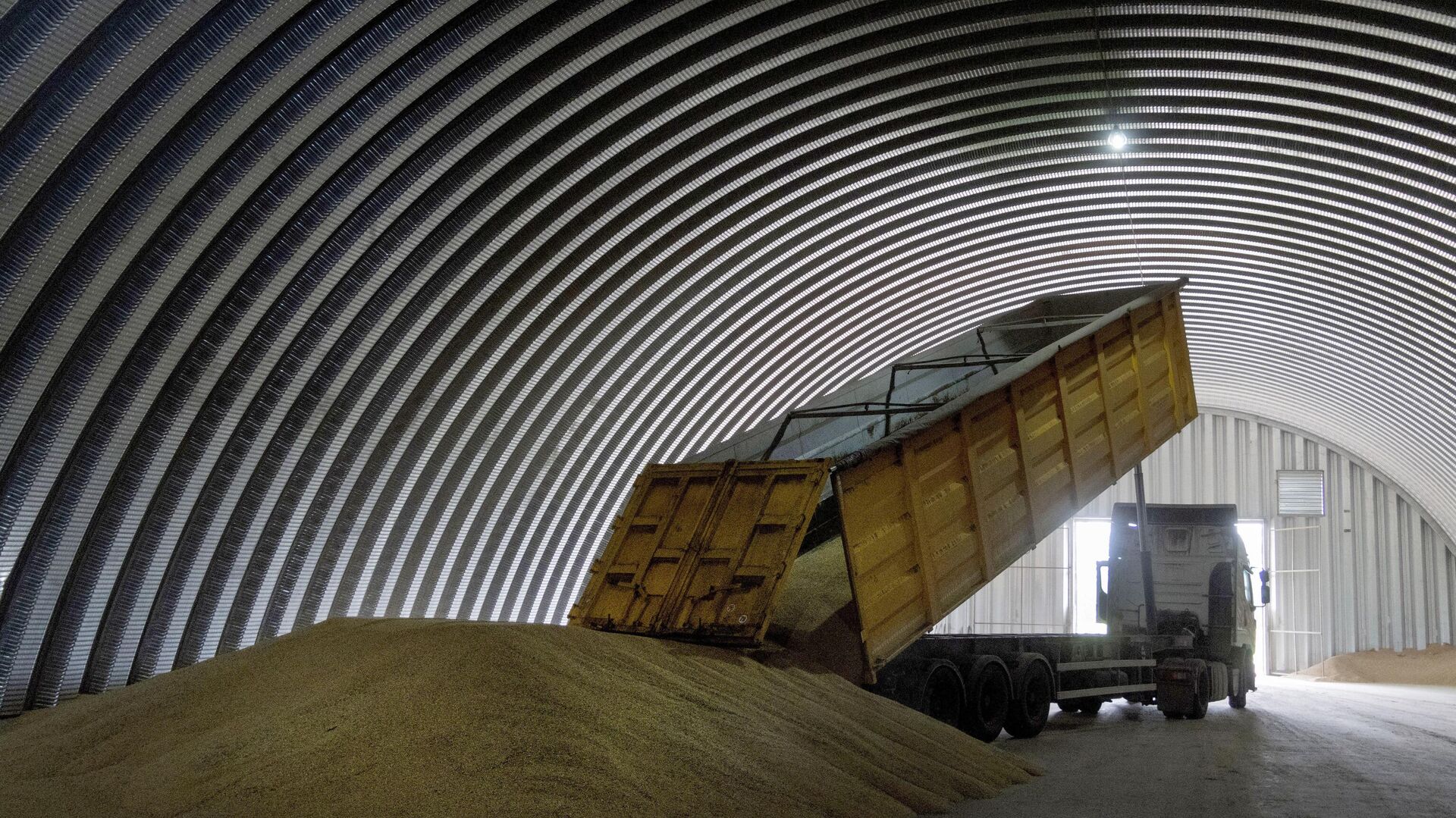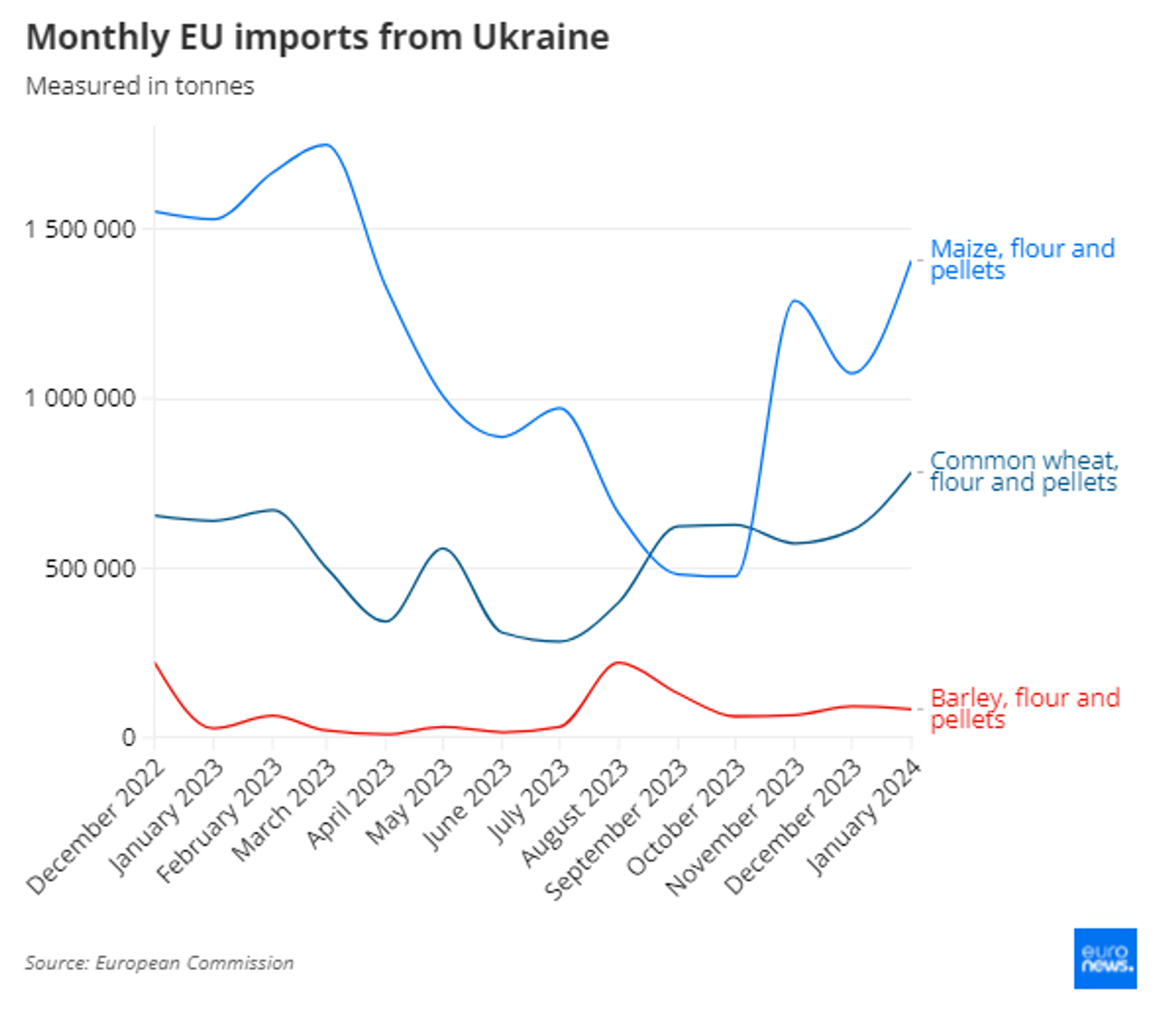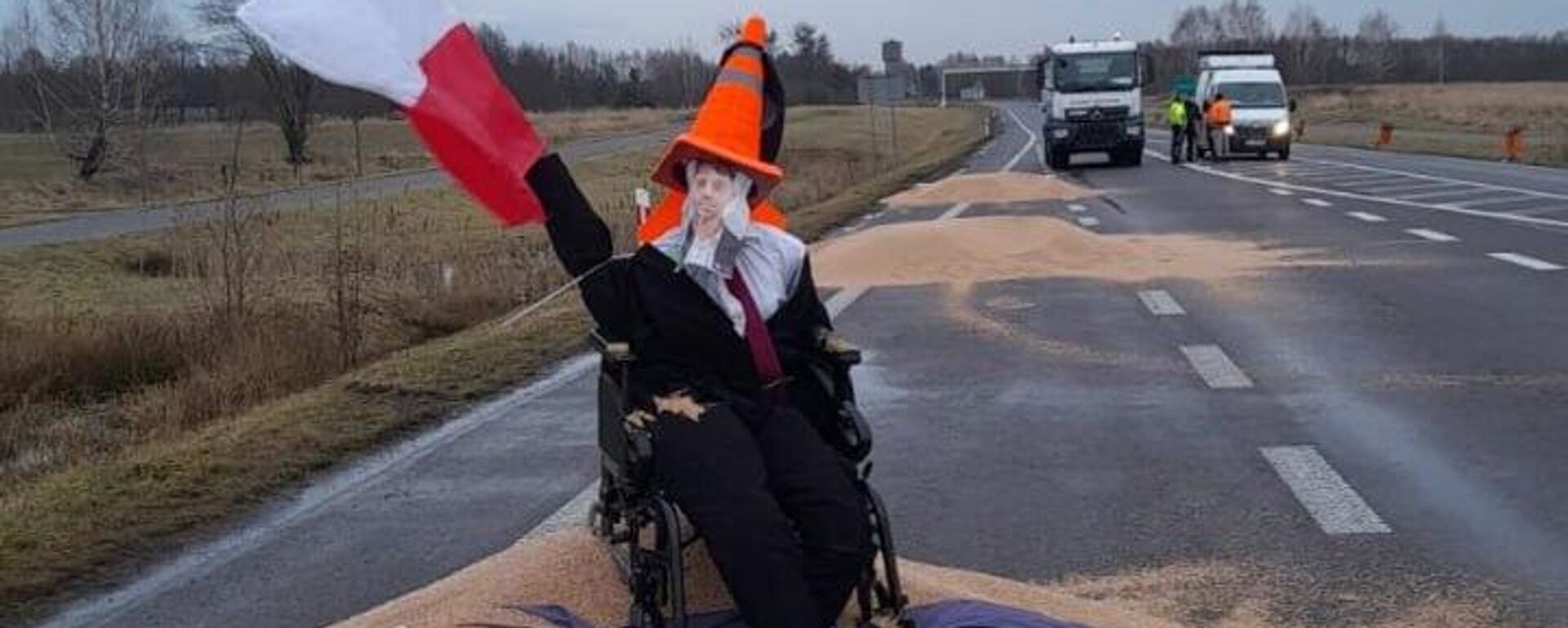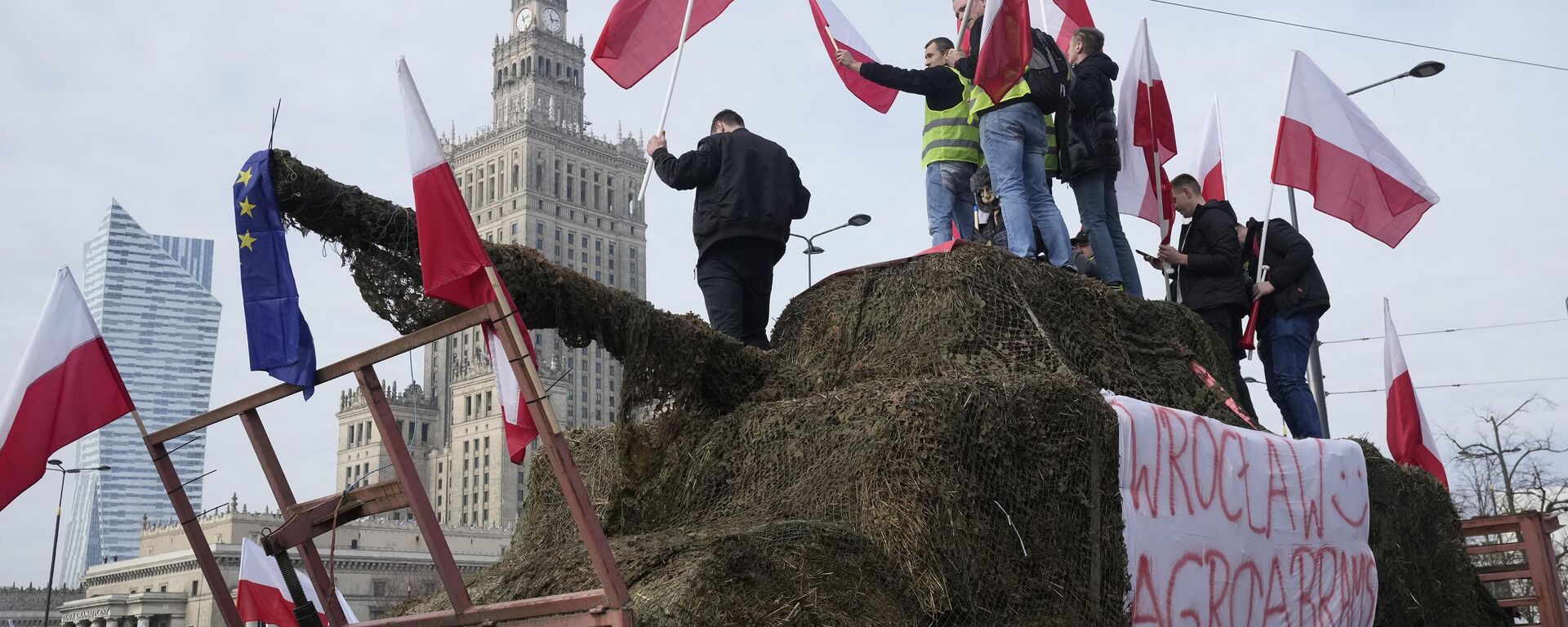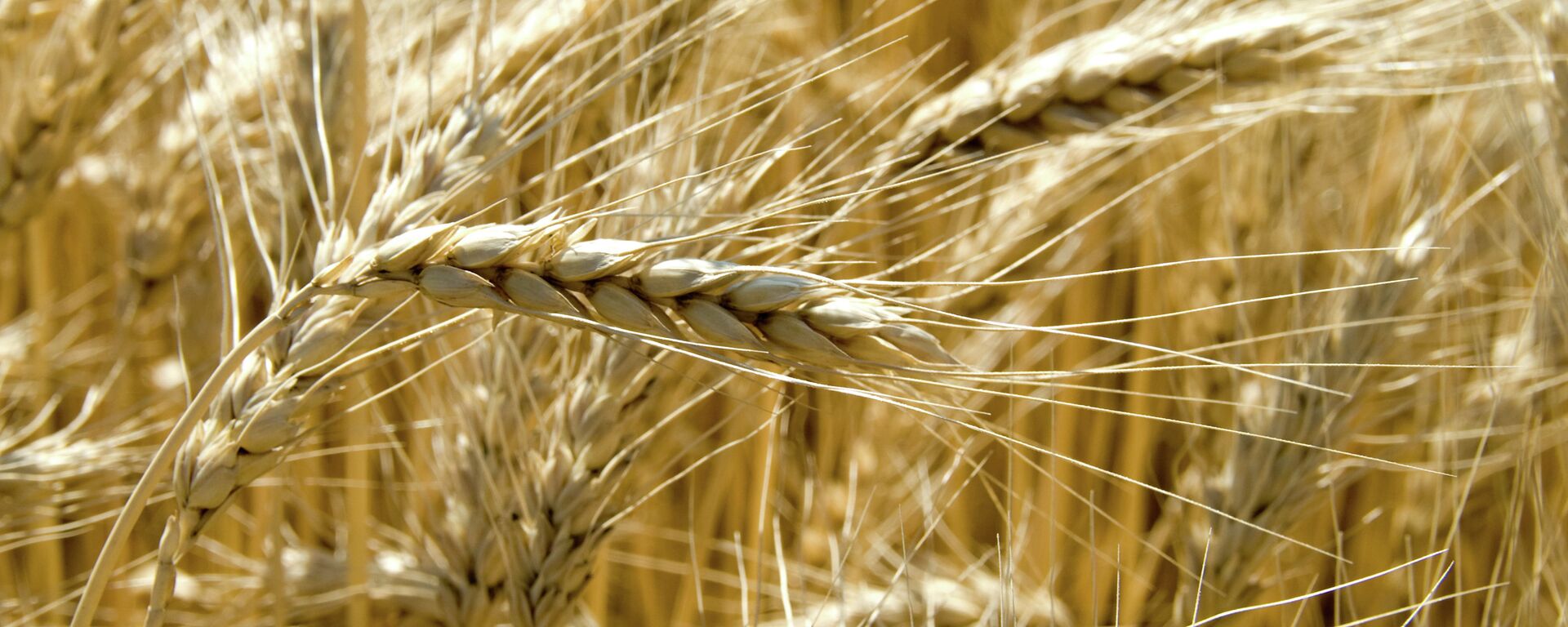https://sputnikglobe.com/20240328/eu-devises-deal-to-extend-tariff-free-ukraine-trade-amid-raging-farmers-protests-1117599030.html
EU Devises Deal to Extend Tariff-Free Ukraine Trade Amid Raging Farmers' Protests
EU Devises Deal to Extend Tariff-Free Ukraine Trade Amid Raging Farmers' Protests
Sputnik International
Against a backdrop of widespread farmers protests, embattled EU ambassadors have come up with a compromise plan for an extension of tariff-free trade measures for Ukraine for another year.
2024-03-28T09:28+0000
2024-03-28T09:28+0000
2024-03-28T09:28+0000
world
european union (eu)
tariffs
ukraine
poland
european parliament
world trade organization (wto)
grain
grain exports
europe's farmer protests
https://cdn1.img.sputnikglobe.com/img/07e8/03/1c/1117597853_0:161:3071:1888_1920x0_80_0_0_4fe8986d6b42ccbd511ff47029a28b48.jpg
Against a backdrop of widespread farmer protests, embattled EU ambassadors have come up with a compromise plan for an extension of tariff-free trade measures for Ukraine for another year.According to a statement by the Belgian EU presidency, member states’ ambassadors to the EU ("Coreper") reached a qualified majority to approve the provisional agreement to extend the deal until June 2025."Ambassadors agreed on a new compromise to extend trade measures (ATM) for Ukraine, securing a balanced approach between support for Ukraine and protection of EU agricultural markets," the presidency announced on social media. It added that the proposal would be presented to the European Parliament for a "swift" resolution.However, it is estimated that the more "hardened" position outlined in the deal will see Kiev lose about €330 million annually, as per reports.The text of the agreement has been "tweaked" sufficiently to introduce a greater amount of “safeguards," or import caps, on products such as oats, maize, groats, eggs, poultry, sugar, and honey. All of these would be subject to tariffs, should their import to the EU bloc exceed the average volumes of the past three years. The reference period for the import volumes is to be extended back to the second half of 2021, media reports cite insiders as saying.The text of the compromise deal reportedly contains a rather vague term that implies expedited application of "remedial measures" by member states in the event of market destabilization. Put plainly, this could ease the introduction of national bans. In a disappointment for Poland, France, and Hungary, the latest compromise proposal reportedly doesn’t include potential restrictions on wheat.The new compromise signed off on by EU ambassadors followed an agreement reached by negotiators from the European Parliament and the European Council on March 20. At the time, they opted to extend the temporary suspension of duties on exports of Ukrainian agricultural products to the European Union until June 5, 2025. It was added that the European Commission could take any necessary measures if imports from Ukraine lead to significant disruption to the EU market or the markets of one or more EU countries. "The regulation also provides for an emergency brake for particularly sensitive agricultural products, namely poultry, eggs, and sugar," the parliament said, adding that European lawmakers "secured the expansion of this list to include oats, maize, groats and honey" and also "attained firm commitments from the Commission to take action if there is a surge of Ukrainian imports of wheat."The European Parliament lawmakers also "ensured that the Commission would act faster - within 14 days instead of 21 days - if trigger levels for the automatic safeguards were reached."As the current preferential trade agreement is set to expire on June 5, the stage was set for bitter wrangling between members of the 27-state bloc. The EU’s whatever-it-takes “solidarity” with the regime in Kiev has been sorely tested over the chaos that opening the floodgates to Ukrainian food imports has brought. Ukraine has been enjoying a veritable export bonanza over the past two years, flooding Europe with cheap grain, seed oils, and other foodstuffs, which has been difficult for local farmers to compete with. But the deluge has given rise to huge backlash, in some countries more than others, and, thus, the wrangling over how to extend the trade preferences.The extra rounds of negotiations between member countries were needed as the EU found itself split on the matter. Eastern European countries like Poland, Hungary, and Slovakia, later joined by France, Italy, and Austria, have all adopted a restrictive position on the debate. The Baltic States, Germany, and the Netherlands have been resisting any tightening of the preferential trade deal with Ukraine.After the Ukraine conflict escalated, in June 2022, the 27-member EU bloc "magnanimously" scrapped all restrictions, including customs duties and quotas, on Ukrainian food goods. It was to be expected that such a move might backfire – and that it did, triggering the anguish of local farmers, which reached boiling point by mid-2023. With the floodgates to cheap Ukrainian imports flung wide open, Kiev was able to offload its cheap foodstuffs in European countries, saturating the market and causing the local farmers to argue that low-cost cereals were bringing down prices, filling up storages, and presenting unfair competition. Moreover, in April 2023, a scandal broke out in Poland over the import from Ukraine of what was referred to as "technical grain," not intended for consumption.Last year, Poland, Hungary, and Slovakia all slapped overnight bans on a range of agricultural products coming from Ukraine, with Bulgaria and Romania warning they were prepared to follow suit. Kiev filed a lawsuit with the World Trade Organization (WTO) over unfair trade practices. In response, Polish President Andrzej Duda responded by calling Ukraine a “dangerous drowning man” that threatens to “drag” Europe down with it into oblivion. Despite taking flak from both Brussels and Kiev, Poland, Hungary, and Slovakia have maintained their bans.
https://sputnikglobe.com/20240320/eu-partially-extends-suspension-of-duties-on-ukraines-agricultural-exports-until-june-2025-1117437982.html
https://sputnikglobe.com/20240309/enough-is-enough-why-poland-seeks-to-strip-ukraine-of-eu-trade-benefits-1117229160.html
https://sputnikglobe.com/20240321/fact-check-is-russia-really-to-blame-for-eus-food-frustration-1117469847.html
ukraine
poland
Sputnik International
feedback@sputniknews.com
+74956456601
MIA „Rossiya Segodnya“
2024
News
en_EN
Sputnik International
feedback@sputniknews.com
+74956456601
MIA „Rossiya Segodnya“
Sputnik International
feedback@sputniknews.com
+74956456601
MIA „Rossiya Segodnya“
eu tariffs on ukraine, food crisis, food crisis, farmer protests, farmers protests, farmers' protests, farmers' unions, haystacks and piles of manure, farmers protests, farmers demonstrations, farmers in europe, farmers protest in europe, european farmers, energy crisis in europe, sanctions against russia, economic crisis, energy crisis, growing prices, nord stream sabotage, nord stream, sanctions failed, sanctions backfired, ukrianian grain, ukrainian food, import from ukraine, ukrainian coflicts
eu tariffs on ukraine, food crisis, food crisis, farmer protests, farmers protests, farmers' protests, farmers' unions, haystacks and piles of manure, farmers protests, farmers demonstrations, farmers in europe, farmers protest in europe, european farmers, energy crisis in europe, sanctions against russia, economic crisis, energy crisis, growing prices, nord stream sabotage, nord stream, sanctions failed, sanctions backfired, ukrianian grain, ukrainian food, import from ukraine, ukrainian coflicts
EU Devises Deal to Extend Tariff-Free Ukraine Trade Amid Raging Farmers' Protests
The EU-Ukraine preferential trade regime, abolishing tariffs on Ukrainian goods and foods, first took effect in June 2022. Despite the move backfiring on Kiev’s fervid supporters, and forcing them to contend with angry protests by their own farmers, the deal was extended last year, with the liberalization measures set to expire on June 5.
Against a backdrop of
widespread farmer protests, embattled EU ambassadors have come up with a compromise plan for
an extension of tariff-free trade measures for Ukraine for another year.
According to a statement by the Belgian EU presidency, member states’ ambassadors to the EU ("Coreper") reached a qualified majority to approve the provisional agreement to extend the deal until June 2025.
"Ambassadors agreed on a new compromise to extend trade measures (ATM) for Ukraine, securing a balanced approach between support for Ukraine and protection of EU agricultural markets," the presidency announced on social media. It added that the proposal would be presented to the European Parliament for a "swift" resolution.
However, it is estimated that the more "hardened" position outlined in the deal will see Kiev lose about €330 million annually, as per reports.
The text of the agreement has been "tweaked" sufficiently to introduce a greater amount of “safeguards," or import caps, on products such as oats, maize, groats, eggs, poultry, sugar, and honey. All of these would be subject to tariffs, should their import to the EU bloc exceed the average volumes of the past three years. The reference period for the import volumes is to be extended back to the second half of 2021, media reports cite insiders as saying.
The text of the compromise deal reportedly contains a rather vague term that implies expedited application of "remedial measures" by member states in the event of market destabilization. Put plainly, this could ease the introduction of national bans. In a disappointment for Poland, France, and Hungary, the latest compromise proposal reportedly doesn’t include potential restrictions on wheat.
The new compromise signed off on by EU ambassadors followed an agreement reached by negotiators from the European Parliament and the European Council on March 20. At the time, they opted to extend the temporary suspension of duties on exports of Ukrainian agricultural products to the European Union until June 5, 2025.
It was added that the European Commission could take any necessary measures if imports from Ukraine lead to significant disruption to the EU market or the markets of one or more EU countries.
"
The regulation also provides for an emergency brake for particularly sensitive agricultural products, namely poultry, eggs, and sugar," the parliament said, adding that European lawmakers "
secured the expansion of this list to include oats, maize, groats and honey" and also "attained firm commitments from the Commission to take action if there is a surge of Ukrainian imports of wheat."
The European Parliament lawmakers also "ensured that the Commission would act faster - within 14 days instead of 21 days - if trigger levels for the automatic safeguards were reached."
As the current preferential trade agreement is set to expire on June 5, the stage was set for bitter wrangling between members of the 27-state bloc. The EU’s whatever-it-takes “solidarity” with the regime in Kiev has been
sorely tested over the chaos that opening the floodgates to Ukrainian food imports has brought. Ukraine has been enjoying a veritable export bonanza over the past two years, flooding Europe with cheap grain, seed oils, and other foodstuffs, which has been difficult for local farmers to compete with. But the deluge has given rise to
huge backlash, in some countries more than others, and, thus, the wrangling over how to extend the trade preferences.
The extra rounds of negotiations between member countries were needed as the EU found itself split on the matter. Eastern European countries like Poland, Hungary, and Slovakia, later joined by France, Italy, and Austria, have all adopted a restrictive position on the debate. The Baltic States, Germany, and the Netherlands have been resisting any tightening of the preferential trade deal with Ukraine.
After the
Ukraine conflict escalated, in June 2022, the 27-member EU bloc "magnanimously" scrapped all restrictions, including customs duties and quotas, on Ukrainian food goods. It was to be expected that such a move might
backfire – and that it did, triggering the anguish of local farmers, which reached boiling point by mid-2023. With the floodgates to cheap Ukrainian imports flung wide open, Kiev was able to offload its cheap foodstuffs in European countries, saturating the market and causing the
local farmers to argue that low-cost cereals were bringing down prices, filling up storages, and presenting unfair competition.
Moreover, in April 2023, a scandal broke out in Poland over the import from Ukraine of what was referred to as "technical grain," not intended for consumption.
Last year, Poland, Hungary, and Slovakia all slapped overnight bans on a range of agricultural products coming from Ukraine, with Bulgaria and Romania warning they were prepared to follow suit. Kiev filed a lawsuit with the World Trade Organization (WTO) over unfair trade practices. In response, Polish President Andrzej Duda responded by calling Ukraine a
“dangerous drowning man” that threatens to “drag” Europe down with it into oblivion. Despite taking flak from both Brussels and Kiev, Poland, Hungary, and Slovakia have maintained their bans.
